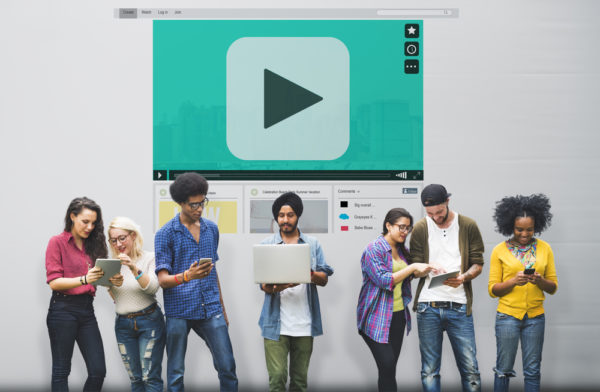More often than not, students pick up a mobile device or use a computer to access videos and digital media online. With a wealth of resources online, educators can find content that meets students where they’re comfortable learning, with interactive and engaging presentation.
TED Talks have grown in popularity in part for their inspiring and frank perspectives on any number of world issues, and educators can leverage these resources for learning.
Educators can build lessons around any TED-Ed Original, TED Talk or YouTube video through Ted-Ed. Once they locate the video they wish to use, they next use the TED-Ed Lesson editor to add questions, discussion prompts and additional resources. When the lesson is published, educators can monitor their progress and submitted work.
TED-Ed’s public lessons library offers customizable existing lessons for educators to use, as well.
Next page: 10 TED-Ed lessons for students
Here are a number of TED-Ed lessons on topics including math, science, social studies, and technology–start your foray into TED-Ed videos with these, or create your own:
1. What causes cavities? When a team of archaeologists recently came across some 15,000-year-old human remains, they made an interesting discovery: the teeth of those ancient humans were riddled with holes. So what causes cavities, and how can we avoid them? Mel Rosenberg takes us inside our teeth to find out.
2. Is it bad to hold your pee? Humans should urinate at least four to six times a day, but occasionally, the pressures of modern life force us to clench and hold it in. How bad is this habit, and how long can our bodies withstand it? Heba Shaheed takes us inside the bladder to find out.
3. How does the Nobel Peace Prize work? Among the top prestigious awards in the world, the Nobel Peace Prize has honored some of the most celebrated and revered international figures and organizations in history. But how does the nomination process work? And who exactly is eligible? Adeline Cuvelier and Toril Rokseth detail the specifics of the Nobel Peace Prize.
4. What would happen if the world went vegetarian? What would the planet look like if everyone became a vegetarian right now? AsapSCIENCE takes a look at the numbers.
5. The missing plague that could have changed history. When European colonizers came to American shores, the plague they brought with them killed almost 90% of the indigenous population. But why was there no existing plague in the “New World” that affected Europeans?
6. Can you solve the prisoner boxes riddle? Your favorite band is great at playing music…but not so great at being organized. They keep misplacing their instruments on tour, and it’s driving their manager mad. Can you solve the brain-numbing riddle their manager assigns them and make sure the band stays on their label? Yossi Elran shows how.
7. What is a vector? Physicists, air traffic controllers, and video game creators all have at least one thing in common: vectors. But what exactly are they, and why do they matter? David Huynh explains how vectors are a prime example of the elegance, beauty, and fundamental usefulness of mathematics.
8. How transistors work. Modern computers are revolutionizing our lives, performing tasks unimaginable only decades ago. This was made possible by a long series of innovations, but there’s one foundational invention that almost everything else relies upon: the transistor. Gokul J. Krishnan describes what a transistor is and how this small device enables all the amazing things computers can do.
9. How do solar panels work? The Earth intercepts a lot of solar power: 173,000 terawatts. That’s 10,000 times more power than the planet’s population uses. So is it possible that one day the world could be completely reliant on solar energy? Richard Komp examines how solar panels convert solar energy to electrical energy.
10. Does grammar matter? It can be hard sometimes, when speaking, to remember all of the grammatical rules that guide us when we’re writing. When is it right to say “the dog and me” and when should it be “the dog and I”? Does it even matter? Andreea S. Calude dives into the age-old argument between linguistic prescriptivists and descriptivists — who have two very different opinions on the matter.
- 4 ways to support work-based learning - April 23, 2024
- Prioritizing inclusivity in game-based learning - April 22, 2024
- Friday 5: Universal Design for Learning - April 19, 2024


